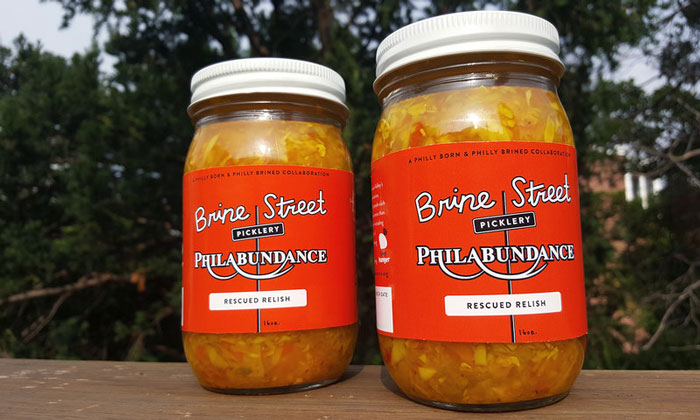With relish: consumers happily eat food made from waste ingredients
- Like
- Digg
- Del
- Tumblr
- VKontakte
- Buffer
- Love This
- Odnoklassniki
- Meneame
- Blogger
- Amazon
- Yahoo Mail
- Gmail
- AOL
- Newsvine
- HackerNews
- Evernote
- MySpace
- Mail.ru
- Viadeo
- Line
- Comments
- Yummly
- SMS
- Viber
- Telegram
- Subscribe
- Skype
- Facebook Messenger
- Kakao
- LiveJournal
- Yammer
- Edgar
- Fintel
- Mix
- Instapaper
- Copy Link
Posted: 13 December 2017 | George Smith (New Food) | 1 comment
Food waste is a global problem. Every year, humans throw away 1.3 billion tonnes, a third of our production. One solution may have emerged – feeding it back to us.


ROOM ON THE SHELF: Consumers have been revealed to be a lot more open minded to waste food products such as Rescued Relish
A study has found that consumers will accept products made from ingredients destined for the rubbish.
The research was conducted at Drexel University in the American state of Pennsylvania. It set out to discover whether foods made from surplus ingredients that would otherwise have been wasted might be made palatable to consumers.
“There is an economic, environmental and cultural argument for keeping food, when possible, as food and not trash,” said PhD Professor Jonathan Deutsch, one of the three Drexel professors who led the project.
“Converting surplus foods into value-added products will feed people, create opportunities for employment, entrepreneurship and lower the environmental impact of wasted resources.”
American households are estimated to collectively throw away 80 billion pounds of food each year. Many ingredients are also discarded during the manufacturing process and perfectly edible produce deemed ‘ugly’ doesn’t make it to grocery displays.
The research team led by Prof Deutsch, Prof Hasan Ayaz and Prof Rajneesh Suri decided to decipher the consumers’ decision-making process to help come up with appropriate communication for these products.
Along with graduate students Siddharth Bhatt, Jeonggyu Lee and Ben Fulton, they conducted a series of tests as a first attempt to understand a consumer’s decision-making process with respect to this new food category, value-added surplus foods. They examined three product cues for value-added surplus products: product description, label and benefit (to self or others).
In the first study, participants were presented with three food categories:
- Conventional
- Organic
- Value-added surplus food
Study participants were presented four different foods using these descriptions.
Participants felt that value-added surplus products were more helpful to the environment than conventional foods, but less helpful when compared to organic foods. The results demonstrated that participants clearly identified value-added foods as a unique category with unique perception, separate from organic and conventional categories.
Next, researchers tested nine product labels to brand value-added surplus products: Upcycled, recycled, upscaled, rescaled, reprocessed, reclaimed, up-processed, resorted and rescued. “Upcycled” was observed the most preferred label, followed by reprocessed.
For the final test, the researchers looked into whether a product’s benefit for self or others factored into their feelings. It turned out that participants affirmed that consuming value-added products will generate greater benefits to others than themselves.
The positive findings of this study are of value to sustainability advocates, food marketers and scholars. By exploring consumer acceptance of and potentially a preference for value-added surplus products, this research marks some of the first attempts to empirically examine a consumer’s evaluation process for this novel food category. Most importantly, researchers have begun to evaluate how to efficiently present value-added surplus products as a novel category of food to consumers, so that it may contribute some relief to the global food crisis.
“Value-added surplus foods may be perceived closer to organic foods as a category, encouraging the possibility of promoting such foods as a new category offering benefits to society,” said Prof Suri
Not only that, but selling these foods could also prove lucrative.
He added: “Depending upon how you communicate such products, they might also be able to fetch a price premium, like those afforded to organic foods”.
Related topics
Food Security, Food Waste, Research & development, Revenues, Shelf life, Sustainability, The consumer









Re Brine Street Rescued Relish, it may have been forgotten that Relish, a vegetable based , acid preserved condiment, has its origin as a means to value add remnants from the pickle industry.